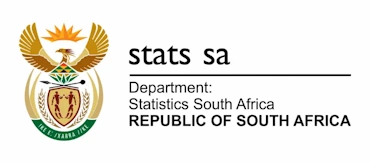Income & Expenditure Survey (IES) 2022/2023
MEDIA RELEASE 28 January 2025
Income & Expenditure Survey (IES) 2022/2023
The Income & Expenditure Survey (IES) 2022/23 released by Statistics South Africa today shows that South Africa’s total annual household consumption expenditure between November 2022 and November 2023 is estimated at R3 trillion. The top four main components of household consumption expenditure were: housing, water, electricity, gas and other fuels; food and non-alcoholic beverages; transport; and insurance and financial services.
The top four main components of household consumption expenditure divisions account for approximately three-quarters (75,6%) of all household consumption expenditure in the country. Essentially, three out of every four rands spent by South African households goes towards these four key areas.
The average annual consumption expenditure for South African households was R143 691 in 2023. However, the median household expenditure for the country was R82 861 per annum. Male-headed households accounted for over 60% of all household consumption expenditure in the country and spent on average about R159 315 in 2023. The median household consumption expenditure for male-headed households was estimated at R85 804 per annum. Female-headed households accounted for under 40% of all household consumption expenditure in South Africa at an average spending of R123 346 per annum. For female-headed households the median household consumption expenditure was estimated at R80 109 per annum.
Results of the survey further show that, on average, South African households had an income of R204 359 per annum in 2023 with a median household income of R95 770. Male-headed households had an average income of R239 590 per annum compared to R158 481 for female-headed households. On average white-headed households earned the highest income of R676 375 per annum. Followed by Indian/Asian-headed households (R417 431), coloured-headed households (R260 816) and black African-headed households (R143 632).
The average household income of white-headed households was almost five times higher than that of black African-headed households and almost three times higher than the average household income of coloured-headed households.
Households headed by those with tertiary education received the highest average income of R577 415 which was almost seven times more than the income earned by those with no schooling (R84 185) who received the lowest average household income. This highlights the potential high level of income inequality that might still exists in South Africa based on educational outcomes. The income of households headed by those with tertiary education was almost six times higher than that of households headed by those with primary education (R98 139). It was also almost four times higher than that of households headed by those with secondary education (R149 758) and almost three times higher than the national average of R204 359.
Gauteng accounted for approximately 36,0% of all household consumption expenditure that occurred in 2023, while Western Cape contributed 18,4%. These two provinces combined accounted for well over half of all household consumption expenditure in the country. However, households in Western Cape are the richest in terms of consumption expenditure with an annual average of R229 636 and a median expenditure of R128 536, followed by households in Gauteng with an average consumption expenditure of R170 628 per annum and a median expenditure of R96 933.
Northern Cape contributed the smallest share of total household consumption expenditure, accounting for just 1,7%, however, the poorest province in terms of household expenditure was North West with an average consumption expenditure of R98 147 and a median expenditure of R61 495.
Households in City of Cape Town had the highest average (R248 539) and median (R140 523) household consumption expenditure in terms of metropolitan area. They were followed by households in the City of Tshwane with an average of R198 035 and a median expenditure of R123 176 respectively. Households in Mangaung had the lowest average consumption expenditure of R119 245 by metropolitan area.
According to the report, majority of the household consumption expenditure came from urban households which accounted for 81.5% of total household consumption expenditure followed by those in traditional (15,3%) and farm areas (3,2%). Households in traditional areas had the lowest average expenditure at R84 502, while those in farm areas had the lowest median expenditure at R59 503.
Close to half (45,3%) of black African-headed households fell within the lowest two expenditure quintiles combined. In other words, each household was spending approximately less than R25 063 per annum. At the upper end of the scale, as few as 13,0% of black African-headed households were found in the upper quintile. Of coloured-headed households, more than a fifth (21,0%) fell in the upper expenditure quintile and more than a third (34,4%) fell below the 3rd quintile.
Results also show that relatively fewer households amongst the Indian/Asian and white population groups are found in the bottom two quintiles. Almost four in every five (77,0%) Indian/Asian-headed households fell into the upper two expenditure quintiles. Majority of white-headed households (78,1%) fell into the upper expenditure quintile.
White-headed households reported the highest average household consumption expenditure of R409 520 per annum. Followed by Indian/Asian-headed households (285 306), coloured-headed households (R180 903) and black African-headed households (R108 461). The average household consumption expenditure of white-headed households was almost four times higher than that of black African-headed households.
Issued by Statistics South Africa
Ends/
For technical enquiries:
Ms Patricia Koka
Chief Director: Poverty & Inequality Statistics
Tel: 012 310 8555
Cell: 071 680 9545
Email: PatriciaK@statssa.gov.za
Mr Rodney Khumalo
Director: Household Income & Expenditure Statistics
Tel: 012 337 6394
Cell: 071 670 1956
Email: RodneyK@statssa.gov.za
For media enquiries, contact:
Ms Felicia Sithole
Cell: 076 430 0693
Email: FeliciaS@statssa.gov.za

